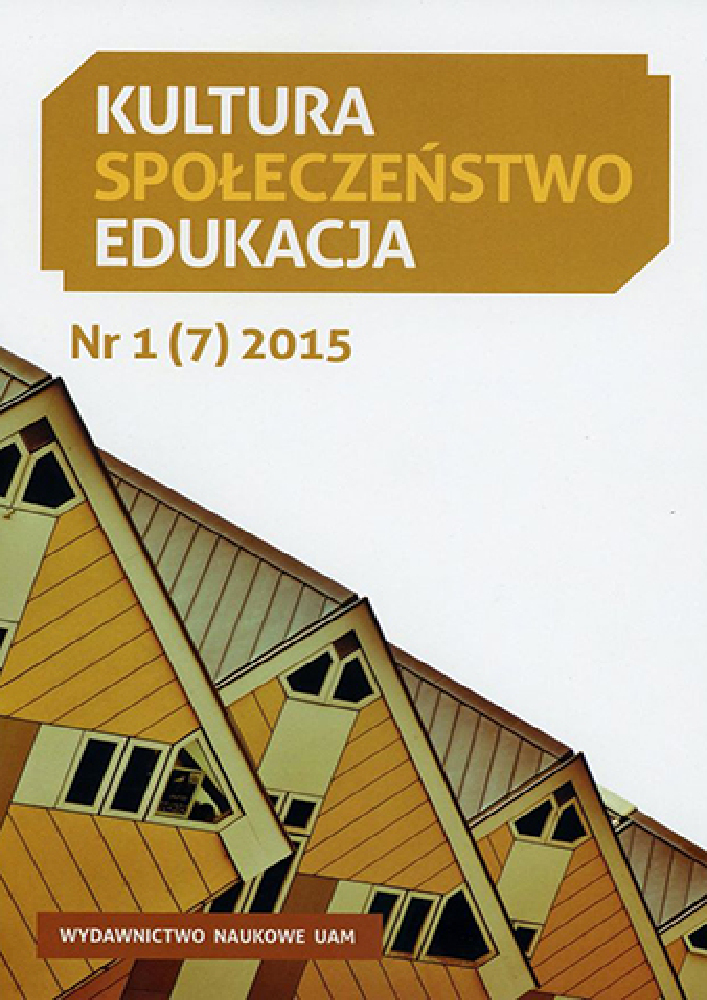Abstrakt
This article is a presentation of new empirical research and solutions for educators who tend to examine new methods and philosophies designed for improving teaching-learning process around the world. For that purpose, the author is introducing reader to the International Baccalaureate (IB) three-dimenstional way of creating school’s curriculum with concept-based approach and idea to transfer knowledge between disciplines using global, key and related concepts. Accomplishment of this work provides a chance to form solutions according to each school’s ‘wants and needs’, e.g. focusing on stimulation of pupils behaviour by implementing the Point System of Behavioral Assessment like in the IB World School No. 006654 case. And then teachers are able to standardize new teaching methods, such as gamification, successfully implementing them in their classes. What’s more gamification can be easily used as a tool for form teachers in order to improve pupils’ social skills and strengthening their involvement in a lesson.Bibliografia
Detering S., Dixon D., Khaled R., Nacke L. (2011). From Game Design Elements to Gamefulness:
Defining Gamification. “MindTrek’11, September 28–30.
Erickson L.H. (2012). Concept-based Teaching and Learning. IBO.
IB (2009). Diploma Programme. From Principles into Practice. Cardiff Gate.
IB (2009). The Primary Years Programme. A basis for practice. Cardiff Gate.
IB (2012). IBCC: the 4th IB Programme. IBO.
IB (2014). MYP from Principles into Practice. For use from September 2014/January 2015. Cardiff Gate.
ISOB (2014). Middle Years Programme. Handbook for parents and students 2014/2015. Bydgoszcz.
Janiec J. (2014), Możliwości wykorzystania interdyscyplinarnego odtwórstwa historycznego na poziomie szkoły podstawowej i gimnazjum oraz liceum w programie IB (International Baccalaureate). [W:] A. Kosecki (ed.). Młodość historii. T. II. Materialne i niematerialne aspekty rekonstrukcji historycznej, Toruń, s. 183–192.
Werbach K., Hunter D. (2012). For the Win: How Game Thinking Can Revolutionize Your Business, Philadelphia.
Źródła internetowe:
Classcraft Team, Classcraft, www.classcraft.com (dostęp: 19.07.2015).
Grade 6, The Civilization Fight, http://grade6isob.wix.com/thecivilizationfight (dostęp: 20.07.2015).
Janiec J., (2015a). Great 7 in the Middle Ages, www.jerzyjaniec.wix.com/great7middleages (dostęp:19.07.2015).
Janiec J., (2015b). Medieval Times in the Eyes of G7, http://jerzyjaniec.wix.com/g7atplay (dostęp:21.07.2015).
International Baccalaureate Organization = IBO, IBO, http://www.ibo.org (dostęp: 16.07.2015).
Telecki M., (2015). Non-public General Education School Complex of Kazimierz Wielki University in Bydgoszcz International School of Bydgoszcz, www.isob.edu.pl (dostęp: 16.07.2015).
Zichermann G., A Long Engagement and a Shotgun Wedding: Why Engagement is the Power Metric of the Decade. Presentation, Gamification Summit, San Francisco, CA, 2011, http://goo.gl/jlaO0 (dostęp: 20.08.2015).
Licencja
Prawa autorskie (c) 2016 Jerzy Janiec

Utwór dostępny jest na licencji Creative Commons Uznanie autorstwa – Bez utworów zależnych 4.0 Międzynarodowe.
